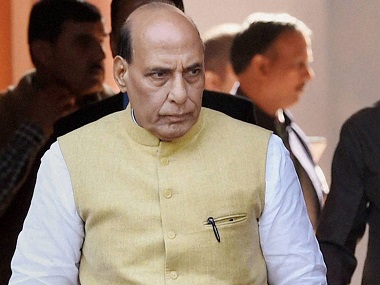EuroNews (17 July 2019)
The race for the EU's top job was supposed to be clear cut.
In the run-up to May's elections, European political parties nominated their candidate to be the next president of the European Commission.
The idea behind the so-called Spitzenkandidaten process is that whoever got the biggest share of the vote would also get their hands on the EU's top job.
It's part of a drive to promote democracy and was used to usher in Jean-Claude Juncker as European Commission president in 2014.
But this year, with leaders of European countries unable to agree on a Spitzenkandidaten, it has been abandoned.
It means Manfred Weber, the candidate for the largest party in the European Parliament, the European People's Party (EPP), misses out.
Instead, Germany's defence minister, Ursula von der Leyen, was chosen by leaders of European countries and has now won the confidence of a majority of MEPs.
This all begs the question: is the Spitzenkandidaten process dead?
It has certainly not come cheap: the European Parliament spent over €1 million organising a pre-election debate between hopefuls for the EU's top job. The EPP has spent an estimated €5.5m campaigning and the Socialists and Democrats €1.9m.
"I don't think the system of the lead candidate is dead," Alberto Alemanno, an EU law professor at HEC Paris, told Good Morning Europe.
"Rather the opposite: we are finally having a conversation about the need to make a linkage between the citizens voting and the political colour of the European Commission.
"Even though the electorate didn’t necessarily know those candidates, didn’t know the rules of the game, still, the fact of having those candidates certainly played a favourable role in increasing media coverage, in personalising and even humanising the face of the next European Union."
Journalist name • Joao Vitor Da Silva Marques
Video editor • Joao Vitor Da Silva Marques
No comments yet.
-
 INDIA, CHINA ARE RESPECTING BILATERAL PACTS TO ENSURE PEACE, TRANQUILITY ALONG BORDER, RAJNATH SINGH TELLS LOK SABHA
Asia - Pacific
18.07.2019
INDIA, CHINA ARE RESPECTING BILATERAL PACTS TO ENSURE PEACE, TRANQUILITY ALONG BORDER, RAJNATH SINGH TELLS LOK SABHA
Asia - Pacific
18.07.2019
- GEORGIAN DREAM HEAD SUPPORTS INTERIOR MINISTER DESPITE PROTESTS DEMANDING RESIGNATION The Caucasus and Turkish-Armenian Relations 18.07.2019
- NEPAL, GERMANY TO HOLD JOINT POLITICAL CONSULTATIONS ANNUALLY Asia - Pacific 18.07.2019
- DATA OF 'NEARLY ALL ADULTS' IN BULGARIA STOLEN The Balkans 18.07.2019
- SPITZENKANDIDATEN: IS THIS THE END OF THE POLITICAL EXPERIMENT? Europe - EU 18.07.2019
-
19.04.2024
Türk-Ermeni İlişkileri Üzerine Ömer Engin Lütem Konferansları 2023 -
11.04.2023
Türk-Ermeni İlişkileri Üzerine Ömer Engin Lütem Konferansları 2022 -
27.03.2023
RADİKAL ERMENİ UNSURLARCA GERÇEKLEŞTİRİLEN MEZALİMLER VE VANDALİZM -
17.03.2023
PATRIOTISM PERVERTED -
23.02.2023
MEN ARE LIKE THAT -
03.02.2023
BAKÜ-TİFLİS-CEYHAN BORU HATTININ YAŞANAN TARİHİ -
16.12.2022
INTERNATIONAL SCHOLARS ON THE EVENTS OF 1915 -
07.12.2022
FAKE PHOTOS AND THE ARMENIAN PROPAGANDA -
07.12.2022
ERMENİ PROPAGANDASI VE SAHTE RESİMLER -
30.03.2022
Türk-Ermeni İlişkileri Üzerine Ömer Engin Lütem Konferansları 2021 -
01.01.2022
A Letter From Japan - Strategically Mum: The Silence of the Armenians -
01.01.2022
Japonya'dan Bir Mektup - Stratejik Suskunluk: Ermenilerin Sessizliği -
11.02.2021
Türk-Ermeni Uyuşmazlığı Üzerine Ömer Engin Lütem Konferansları 2020 -
03.06.2020
Anastas Mikoyan: Confessions of an Armenian Bolshevik -
08.04.2020
Sovyet Sonrası Ukrayna’da Devlet, Toplum ve Siyaset - Değişen Dinamikler, Dönüşen Kimlikler -
18.03.2020
Türk-Ermeni Uyuşmazlığı Üzerine Ömer Engin Lütem Konferansları 2019 -
08.03.2019
Türk-Ermeni Uyuşmazlığı Üzerine Ömer Engin Lütem Konferansları 2018 -
12.06.2018
Ermeni Sorunuyla İlgili İngiliz Belgeleri (1912-1923) - British Documents on Armenian Question (1912-1923) -
02.12.2016
Turkish-Russian Academics: A Historical Study on the Caucasus -
01.07.2016
Gürcistan'daki Müslüman Topluluklar: Azınlık Hakları, Kimlik, Siyaset -
10.03.2016
Armenian Diaspora: Diaspora, State and the Imagination of the Republic of Armenia -
24.01.2016
Ermeni Sorunu Temel Bilgi ve Belgeler (2. Baskı)
-
AVİM Conference Hall 24.01.2023
CONFERENCE TITLED “HUNGARY’S PERSPECTIVES ON THE TURKIC WORLD"









